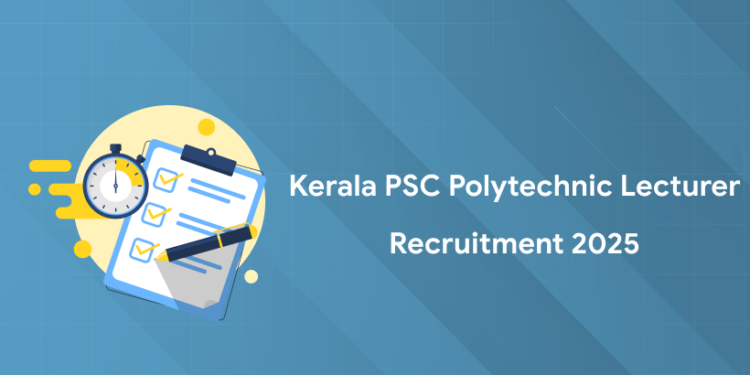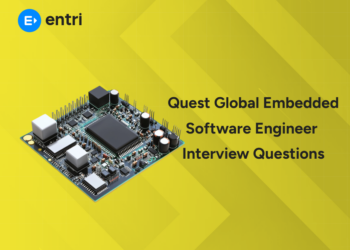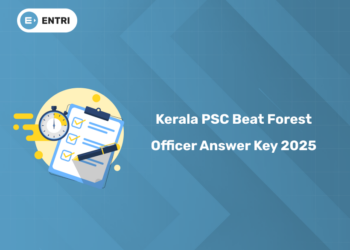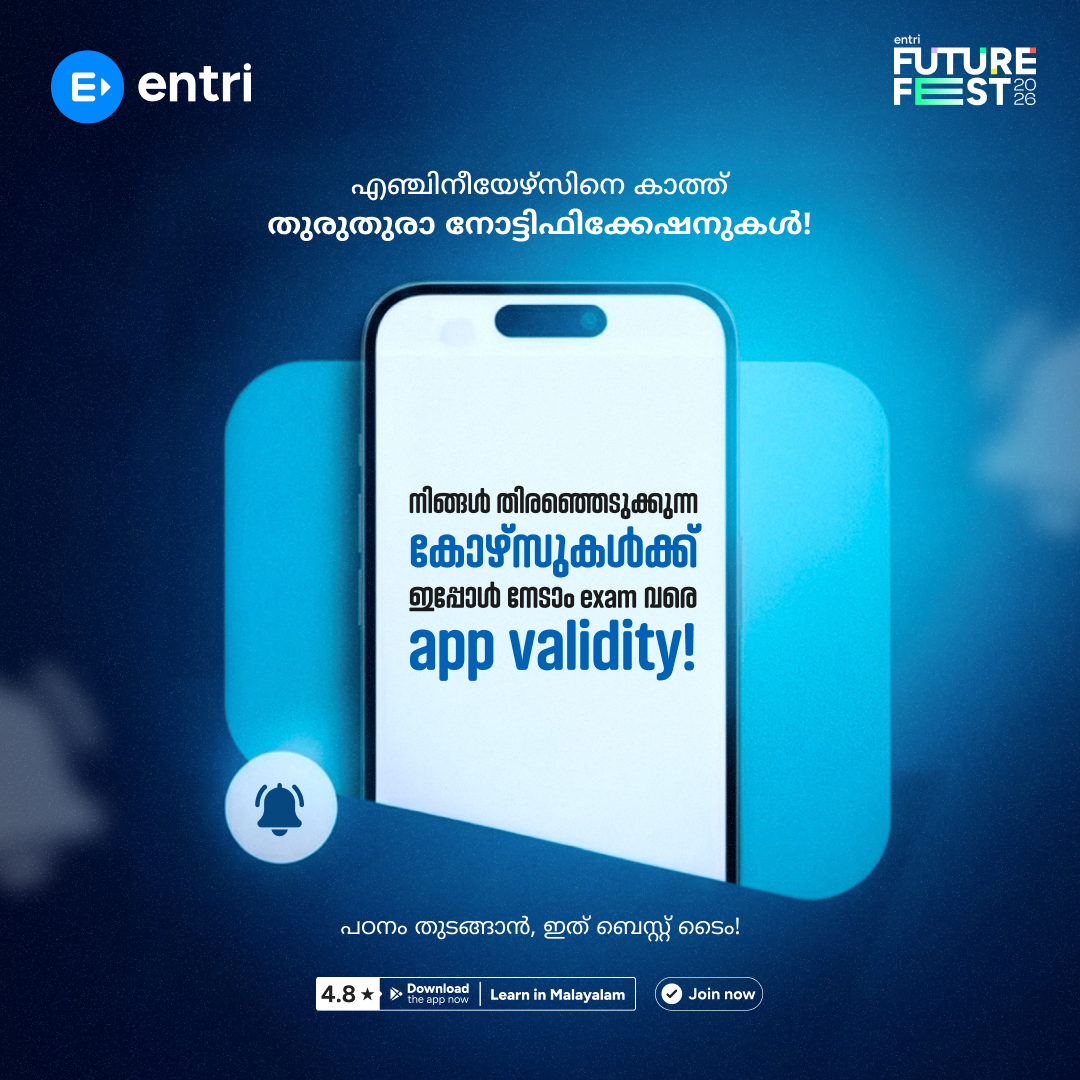Table of Contents
Kerala PSC Polytechnic Lecturer 2025 Notification out! The Kerala Public Service Commission (KPSC) has announced the recruitment for the post of Lecturer in Electronics Engineering (Category No. 720/2024) under the Department of Technical Education. The post is for Government Polytechnic Colleges, offering AICTE Scale pay, with anticipated vacancies.
Eligible candidates can apply online through One Time Registration on the official KPSC website. The application deadline is January 29, 2025. The ranked list will remain valid for up to three years, and 4% of vacancies are reserved for Differently Abled candidates. Check out below for detailed overview!
Kerala PSC Polytechnic Lecturer 2025 Recruitment Highlights
| Particulars | Details |
| Name of recruiting organization | Kerala Public Service Commission (PSC) |
| Name of department | Technical Education |
| Name of post | Lecturer in Electronics Engineering (Govt. Polytechnic Colleges) |
| Category Number | 720/2024 |
| Number of vacancies | As per Notification |
| Notification Release Date | December 31, 2024 |
| Apply Date | December 31, 2024 |
| Last Date to Apply | January 29, 2025 |
| Mode of recruitment | Direct Recruitment |
| Mode of application | Online |
| Official website | keralapsc.gov.in |
Kerala PSC Polytechnic Lecturer 2025 Recruitment Notification
1: Between the period of 1858-1947, how many Viceroys ruled over India?
The Kerala Public Service Commission (KPSC) has opened applications for the position of Lecturer in Electronics Engineering in Government Polytechnic Colleges as part of the 2025 recruitment. This is a great opportunity for qualified candidates looking to build a career in the technical education sector.
With competitive pay and a promising career path, the recruitment process aims to select skilled individuals who can contribute to the growth and development of technical education in Kerala. Aspiring candidates are encouraged to apply before the deadline, ensuring they meet all the eligibility criteria for a chance to enroll for this post.
Prepare for Kerala PSC Technical Exams with Entri
സർക്കാർ ജോലി എന്ന സ്വപ്നം ഇനി സ്വപ്നം മാത്രമല്ല! Join Kerala's Top-rated PSC Coaching Programs
Join NowKerala PSC Polytechnic Lecturer 2025 Study Notes 2025
| Polytechnic Lecturer | |
| Digital Electronics | |
| Thermodynamics Part 1 | |
| Thermodynamics Part 2 |
Kerala PSC Polytechnic Lecturer Previous Question Paper PDF
| Question Paper Code | Download Link |
| 024/2015 | |
| 025/2015 | |
| 061/2016 | |
| 063/2016 | |
| 069/2016 | |
| 167/2016 | |
| 170/2016 | |
| 110/2023 |
Kerala PSC Polytechnic Lecturer 2025 Notification PDF
The Kerala PSC released the Polytechnic Lecturer 2025 Recruitment notification (Category No. 720/2024) on December 31, 2024. The notification includes details on eligibility criteria, qualifications, age limits, the selection process, and the application procedure for the Lecturer in Electronics Engineering post under the Department of Technical Education. For complete information, please refer to the attached notification PDF.
Prepare for Kerala PSC Technical Exams with Entri
സർക്കാർ ജോലി എന്ന സ്വപ്നം ഇനി സ്വപ്നം മാത്രമല്ല! Join Kerala's Top-rated PSC Coaching Programs
Join NowKerala PSC Polytechnic Lecturer 2025 Apply Online: Date
The Kerala PSC Polytechnic Lecturer Recruitment 2025 online application process is open through the One Time Registration system on the official KPSC website. Candidates can apply for the Lecturer in Electronics Engineering post (Category No. 720/2024) by logging into their KPSC profile. The last date to apply is January 29, 2025. Ensure to complete the registration and submit the application before the deadline.
Kerala PSC Polytechnic Lecturer Apply Online 2025 Important Dates
| Event | Dates |
| Commencement of the submission of the application form | December 31, 2024 |
| The due date for the submission of the application form | January 29, 2025 |
| Admit card releasing date | Will be updated soon |
| Document Verification | Will be updated soon |
| Exam Date | Will be updated soon |
| Result | Will be updated soon |
Kerala PSC Polytechnic Lecturer 2025 Mock Test
| Mock Test Series | Link |
| Series 1 | |
| Series 2 | |
| Series 3 | |
| Series 4 | |
| Series 5 |
Kerala PSC Polytechnic Lecturer 2025 Eligibility Criteria
Age Limit
Candidates must be between 20 to 39 years old, born between January 2, 1985, and January 1, 2004. Age relaxation is available for Scheduled Castes, Scheduled Tribes, and Other Backward Communities. Officers from various departments (e.g., Technical Education, Public Works) can apply with age relaxation based on their service, with a maximum age limit of 50 years as of January 1, 2024.
Qualification Requirements
To apply, candidates must have a first-class Bachelor’s Degree in one of the following disciplines:
- Electronics
- Applied Electronics
- Electronics and Communication Engineering
Additionally, candidates holding non-qualifying degrees such as M.Phil, Ph.D., or Post-Doctoral Fellowship in relevant subjects may receive weightage marks during ranking.
Liability to Serve in Defence Services
Selected candidates may be required to serve in Defence Services for a minimum of four years, including training, if needed. This liability applies only to those under 40 years of age and is limited to the first 10 years of service.
For more detailed information on eligibility, qualifications, and the application process, please refer to the official notification.
Kerala PSC Polytechnic Lecturer 2025 Selection Process
- Confirmation for Examination
- Candidates who are required to take a test must confirm their intention to appear through the One Time Registration (OTR) profile. Failure to confirm will lead to rejection of the application.
- Admit Card
- Only those candidates who confirm their participation can generate and download the admit card. The admit card will be available 15 days before the test date.
- Written/OMR/Online Test
- A Written, OMR, or Online Test may be conducted as part of the selection process. The test will assess candidates on their relevant subject knowledge and general aptitude.
- Certificate Verification
- Candidates who clear the exam (if applicable) will be called for certificate verification. At this stage, candidates need to provide original documents to prove their qualifications, age, and caste/community details.
- Medical Examination (if applicable)
- Selected candidates may undergo a medical examination to ensure they meet the health standards required for the post.
- Final Selection
- After the test and certificate verification, a ranked list of selected candidates will be published. The candidates will be appointed based on merit and available vacancies in the department
Candidates should regularly check the KPSC website and their profiles for updates on the test, admit card, and selection stages.
Crack the Polytechnic Electronics Engineering Exam! Join our Coaching Today!
Kerala PSC Polytechnic Lecturer 2205 Vacancy
The Kerala PSC Polytechnic Lecturer Recruitment 2025 (Category No. 720/2024) announces anticipated vacancies for the position of Lecturer in Electronics Engineering across Government Polytechnic Colleges in Kerala. These vacancies will be filled as per the availability of posts during the recruitment period.
| Kerala PSC Polytechnic Lecturer Vacancy 2025 | |
| Thiruvananthapuram |
Anticipated Vacancy
|
| Kollam | |
| Pathanamthitta | |
| Alappuzha | |
| Kottayam | |
| Idukki | |
| Ernakulam | |
| Thrissur | |
| Palakkad | |
| Malappuram | |
| Kozhikode | |
| Wayanad | |
| Kannur | |
| Kasargod | |
Kerala PSC Polytechnic Lecturer 2025 Application Process – How to Apply
- One Time Registration (OTR)
- Register on the official Kerala PSC website: www.keralapsc.gov.in.
- If already registered, log in using your User-ID and password.
- Application Submission
- Click on the ‘Apply Now’ button for the relevant post.
- New candidates must upload a recent photograph (within 6 months) with the name and date printed at the bottom.
- The uploaded photo will remain valid for 10 years.
- No application fee is required.
- After submitting the application, take a printout by clicking “My Application” in your profile.
- Confirmation for Written/OMR/Online Test
- If applicable, confirm your intent to appear for the test via your OTR profile.
- Only candidates who confirm can generate and download the admission ticket.
- The dates for confirmation and ticket availability will be published in the examination calendar.
- Special Instructions
- If there’s a difference in Caste/Community details from your SSLC records, provide a Gazette Notification and Non-Creamy Layer/Community Certificate at certificate verification.
- Carefully read Part II General Conditions of the notification before submitting your application. Non-compliance will result in rejection.
- Candidates providing false information may face disciplinary action, including disqualification or penalties.
- Important Dates
- Last date for application submission: January 29, 2025, by 12:00 midnight.
Documents Required to Apply
To apply for the Kerala PSC Polytechnic Lecturer Recruitment 2025, candidates must have the following documents:
- Valid Photo (uploaded as per guidelines)
- Age Proof (e.g., Birth Certificate, SSLC)
- Qualification Certificates (degree, mark sheets)
- Community/Caste Certificate (if applicable)
- Non-Creamy Layer Certificate (for OBC candidates, if applicable)
- Aadhaar Card (for ID proof, if available)
Kerala PSC Polytechnic Lecturer 2025 Apply Link
To apply for the Kerala PSC Polytechnic Lecturer Recruitment 2025, candidates must complete the One Time Registration on the official Kerala PSC website. After registration, they can apply for the post by logging into their profile. Click the link below to apply now.
Kerala PSC Polytechnic Lecturer 2025 Salary – Pay Scale
The scale of pay for the Kerala PSC Polytechnic Lecturer post is based on the AICTE pay scale, offering a competitive salary in line with government standards. In addition to the basic pay, candidates will receive allowances and benefits as per Kerala Government rules, including Dearness Allowance (DA), House Rent Allowance (HRA), and other applicable perks.
Special Instructions for Kerala PSC Polytechnic Lecturer Recruitment 2025
- Caste/Community Discrepancy
- If there is a discrepancy between the Caste/Community claimed in the application and the SSLC book, candidates must submit a Gazette Notification and Non-Creamy Layer/Community Certificate at the time of certificate verification.
- General Conditions Compliance
- Candidates must thoroughly read and understand the instructions in Part II of the notification (General Conditions). Any application not in compliance with these conditions will be rejected.
- Disciplinary Actions
- Candidates submitting false claims regarding qualifications, experience, or other details will face disciplinary action under Rule 22 of the Kerala PSC Rules of Procedure. This could lead to disqualification, debarment, or invalidation of exam papers. In extreme cases, criminal proceedings or dismissal from service may occur.










